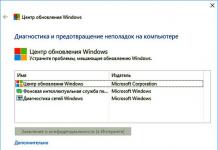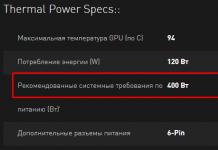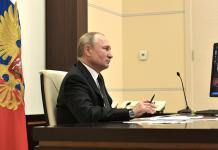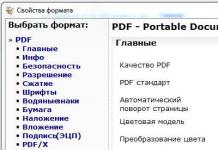On November 1-2, Sochi hosted the conference “Global Threats to Biological Security: Problems and Solutions”.
It gathered more than 100 participants from 40 countries of the world. The main theme is how it is in conditions rapid development medicine to maintain control over potentially dangerous projects and biotechnologies that are now becoming available to a wide range of people, including due to imperfections in national legislation.
“We see unusual behavior of already known and understood microorganisms. Today, the level of scientific and technical development is such that the possibilities of working with the gene are absolutely real,” said the head of Rospotrebnadzor, the chief state sanitary doctor of the Russian Federation Anna Popova.
In such conditions, Popova noted, the availability of new technologies scares. You can order equipment that will allow you to conduct experiments with viruses via the Internet.
“For example, today in the USA it is actually allowed to set up laboratories in a garage. On the Internet, you can easily find manuals on how to organize it. In addition, there are no barriers to obtaining dangerous pathogens. All the necessary information and database is freely available,” she said.
“Among the wide range of biological threats, a special place is occupied by the danger of research with the aim of intentionally infecting humans with infectious diseases. The consequences can be catastrophic, it is not for nothing that biological weapons are qualified as weapons of mass destruction, - in turn, the Deputy Foreign Minister of the Russian Federation noted Sergei Ryabkov. “The threat of its use by both state and non-state actors cannot be discounted, especially since such use can be disguised as natural outbreaks of infectious diseases, among humans, animals or plants.”
According to the Deputy Foreign Minister of the Russian Federation, the situation is aggravated by the fact that this moment there is no objective evidence of compliance with the provisions of the Biological and Toxin Weapons Convention (BTWC). In addition to creating uncertainty and questions about reality, there are also concerns about overfunding of dual-use microbiology programs, dubious experiments with deadly pathogens, especially aerosol experiments, and an increase in military biomedical activity. outside the national territory.
In this regard, experts believe, the overall task should be to strengthen mechanisms to control the development, storage and stockpiling of biological and toxin weapons within the framework of the BTWC.
Close multilateral cooperation is also needed, strengthening supranational mechanisms for curbing the development and proliferation of biological and toxin weapons, and developing international cooperation to provide assistance in managing health risks associated with infections.
In addition, Ryabkov noted, today it is necessary to have rapid response forces and means capable of quickly dealing with the situation on the ground and taking immediate measures to stop the epidemic.
Thus, in the Russian Federation there are mobile anti-epidemic formations as a tool for ensuring biological safety. In particular, specialized anti-epidemic brigades (SPEB) of Rospotrebnadzor and mobile complexes of the Russian Ministry of Defense for the analysis of pathogenic biological materials.
“Our specialized anti-epidemic teams performed at their best when they worked in Guinea. We have done a lot to help stop the Ebola outbreak. But during this period we have also worked out counteraction to the spread of yellow fever in Guinea, measles in Guinea, cholera in Guinea. And this is also a very indicative result of our technologies, our well-trained specialists, our training system, our biosecurity system,” Popova said.
Note:
Earlier, on October 30, the President of Russia Vladimir Putin at a meeting of the Council for the Development of Civil Society and Human Rights, he said that someone was conducting a targeted collection of biological materials from Russians, and we are talking about different ethnic groups. Press Secretary of the Head of State Dmitry Peskov explained that the special services have information about such actions on the part of some emissaries and non-governmental organizations.
On October 31, First Deputy Chairman of the State Duma Committee on Education and Science Gennady Onishchenko told the media that the government is developing a law on biological security in Russia. In December, it should be submitted to the State Duma.
The deputy noted the need to take under serious control the work of foreign clinics and laboratories that conduct medical research on the Russian population.
“We allowed them to access the most intimate, today in many clinics in large cities of our country they conduct research, conduct high-quality work, but they have the opportunity to study this material and transfer data abroad,” Onishchenko added.
Based on media materials
Successfully completed its work in Sochi international Conference“Global Threats to Biological Safety: Problems and Solutions”, which was organized by the Federal Service for Supervision of Consumer Rights Protection and Human Welfare together with the Ministry of Foreign Affairs Russian Federation.
The conference brought together more than 120 participants from 27 countries, international and public organizations, representatives of the scientific community.
The Russian delegation was represented by the head of Rospotrebnadzor, chief state sanitary doctor of the Russian Federation Anna Popova, Deputy Minister of Foreign Affairs of the Russian Federation Sergey Ryabkov, as well as representatives of the Russian Ministry of Defense, the Ministry of Industry and Trade of the Russian Federation. The conference was attended by leading experts of foreign countries working in the field of biological safety.
The final plenary session of the Conference was devoted to the future of the BTWC and the program of work for 2018-2020.
The conference showed that many factors influence the formation of global threats to biological safety, and the issues of countering these threats are becoming increasingly important in modern world. Increasing cross-border travel, growing international trade, developments in biotechnology, regional conflicts, and terrorism exacerbate the risks of the emergence and global spread of dangerous pathogens, both through natural processes and through the deliberate spread of microorganisms and toxins.
In this regard, the conference noted that the prevention and response to threats to biological security of a natural and deliberate nature require close multilateral cooperation, strengthening supranational mechanisms for deterring the development and proliferation of biological and toxin weapons, developing international cooperation to provide assistance in the field of health risk management associated with infections.
In this context, Russian mobile anti-epidemic units were of particular interest as a tool for ensuring biological safety. In particular, the use of specialized anti-epidemic brigades (SPEB) of Rospotrebnadzor and mobile complexes of the Russian Ministry of Defense for the analysis of pathogenic biological materials. SPES of Rospotrebnadzor newest generation and "Sych" of the RKhBZ troops of the Russian Ministry of Defense were presented at the exhibition for review.
During the Conference, the need for open, trusting and universal implementation of the Biological and Toxin Weapons Convention (BTWC) was repeatedly emphasized.
One of the fundamental mechanisms for effectively counteracting global threats to biological security, according to the conference participants, is the BTWC, which is essential for international peace and security. The level of such threats will be reduced by full compliance by states with all obligations assumed under the BTWC, both in terms of excluding the possibility of using bacteriological (biological) and toxin weapons, and in terms of facilitating the most complete exchange of equipment, materials, scientific and technical information on the use of bacteriological (biological) agents and toxins for peaceful purposes.
Based on the results of the presentations and discussions, it can be noted that the following are the priority global threats to biological security today:
— Unusual distribution of known and emerging dangerous pathogens;
- misuse of microorganisms and toxins for military and terrorist purposes;
— uncontrolled biotechnological research related to the BTWC conducted by state and non-state actors;
— misuse of scientific and technological achievements in the field of biology;
— excessive integration of the spheres of international security and international health;
— attempts to “erode” the BTWC regime and create mechanisms to control the development of biotechnologies in parallel with the BTWC;
— global imbalances in biotechnological development that reduce the collective capacity to prevent and respond to transboundary threats to biological security.
The participants noted that the program of intersessional work, aimed at discussing priority tasks for the implementation of the BTWC and the development and implementation of practical mechanisms for the implementation of its articles, makes a significant contribution to the strengthening and implementation of the Convention as a whole.
Given the above, the conference participants expressed their commitment to the goal of strengthening the BTWC and, based on the decision of the VIII BTWC Review Conference (November 7-25, 2016), call on the BTWC participating States during the annual meeting (December 4-8, 2017, Geneva) to take all efforts to make progress on substantive and process points until the next Review Conference IX in order to reach consensus on an intersessional process.
In conclusion, the participants thanked the Russian Federation for organizing the Conference “Global Threats to Biological Security: Problems and Solutions”, stressed the high organizational and content level of the forum in Sochi.
1. To hold on November 1-2, 2017 in Sochi the international scientific and practical conference "Global threats to biological safety. Problems and solutions" (hereinafter referred to as the conference).
2. Rospotrebnadzor to organize the preparation and holding of the conference.
4. The Ministry of Internal Affairs of Russia shall, in accordance with the legislation of the Russian Federation, assist in ensuring the safety of citizens and public order at the venues of the conference and events of the cultural and educational program.
5. Rospotrebnadzor together with the Ministry of Foreign Affairs of Russia to ensure the invitation of foreign guests to participate in the conference.
6. The Ministry of Foreign Affairs of Russia shall ensure the issuance of visas in accordance with the established procedure at the request of Rospotrebnadzor to participants and guests of the conference, as well as to representatives of the press, without charging fees for their issuance.
7. Financial support for the costs associated with the organization and holding of the conference, to be made within the budgetary allocations provided for by Rospotrebnadzor in the federal budget for 2017.
Document overview
On November 1-2, 2017, it was decided to hold an international scientific and practical conference "Global threats to biological safety. Problems and solutions" in Sochi.
Rospotrebnadzor is responsible for organizing and holding the conference.
Dear colleagues,
Ladies and Gentlemen,
Among a wide range of biological threats, a special place is occupied by the danger associated with the use of pathogens of human, animal and plant infectious diseases as a weapon. The consequences of such use can be catastrophic, and therefore biological weapons are justifiably classified as weapons of mass destruction.
In an effort to reduce the horrors of war associated with the use of weapons of mass destruction, the leading powers developed in 1925. However, this treaty did not impose restrictions or prohibitions on the development of biological weapons and only concerned its non-use in war between the States parties to the Protocol. Almost immediately after its adoption, the obligations contained in it began to be interpreted as not prohibiting retaliatory use, which contributed to the development of the doctrine of deterrence and the creation of appropriate arsenals for delivering a retaliatory strike. The regime of the Geneva Protocol did not differ in strength as a result of its open violation in the 1930s. because of the use of chemical weapons, and because of the non-participation in it for many decades of several militarily first-class powers. The Soviet Union acceded to the Geneva Protocol in 1928. In 2001, Russia withdrew all the reservations that the USSR had made when joining the Protocol - we call on all others to do the same without further delay.
The events of World War II confirmed the need to improve the international legal regime in order to reduce the danger of using biological weapons. However, in the first twenty years after the war, the conditions for this were absent due to the fact that the leading states of the Western bloc carried out massive offensive biological programs. And they did it in a coordinated manner. By the end of the 1960s. there, however, they came to the conclusion that in doctrinal terms, biological weapons as weapons of mass destruction duplicate nuclear ones, and therefore, due to the expediency of economical spending of military budget funds, they can be abandoned. As a result, the conditions for international negotiations were formed. At that time, the Soviet Union put forward the initiative to develop a treaty banning both biological and chemical weapons. Supported by many developing countries, such a proposal, however, did not meet with approval in the West - they were in no hurry to give up their then advantage in the means of conducting chemical warfare, especially the then new organophosphorus toxic substances. Therefore, the scope of the negotiations that began in Geneva included only biological agents, as well as toxic waste products of living organisms - toxins. In 1971, at the last stage of negotiations, the text of the future Convention on the Prohibition of Biological and Toxin Weapons was agreed in a bilateral format between the two superpowers of that time - the USSR and the USA. The great intellectual contribution of Great Britain to the development of its text should also be noted. It is no coincidence that these three states were appointed depositaries of the BTWC, and their ratification was determined as a condition for the entry into force of the treaty, which took place in 1975.
The mechanisms for the implementation of the Convention largely reflect the realities of the international situation of that era, characterized by the confrontation between two different socio-political systems, known as the Cold War. Due to the confrontational mentality, it was not possible to provide procedures for verifying compliance with the new treaty and create an organization to assist in the implementation of its provisions. However, the very fact of the emergence of such a Convention in a short period of détente can be considered a great success, since after a few years the Cold War as a paradigm of confrontation began to be hyped with renewed vigor, which until the second half of the 1980s. put an end to the prospects for concluding major agreements in the field of disarmament.
The first ten years of the implementation of the BTWC confirmed the view that its inherent shortcomings needed to be corrected. Taking advantage of the improvement in the international situation, the Soviet Union at the Second Review Conference of the BTWC in 1986 for the first time raised the question of developing a control mechanism. However, other countries were not ready for this, and the opportunity to start such work was then missed. Who knows what the regime of biological disarmament would look like now if the Soviet initiative had been accepted? History, however, does not tolerate the subjunctive mood. In 1991, at the end of its existence, the USSR once again supported the idea of developing a verification mechanism.
In 1992-1993 already the Russian delegation actively participated in the work of the VEREX group of government experts to consider verification issues from a scientific and technical point of view and contributed to the identification, formulation and evaluation of 21 potential verification measures and their various combinations.
Following this, in 1994, Russia, along with others, advocated the start of negotiations on the development of an additional legally binding protocol to the BTWC and actively participated in them for the next six years. Thus, there is a significant Russian contribution to the draft Protocol, which was supposed to be approved at the Fifth Review Conference at the end of 2001. The breakdown in July 2001 of the negotiations that were nearing completion turned out to be a strong shock for us, like many other states, derailed 10-year multilateral diplomacy efforts. Then we did everything possible to save at least something and not to completely nullify the great work done. In particular, we, together with the sane majority, managed to maintain the negotiating mandate of the Protocol and prevent its cancellation. It remains in force and is awaiting the time when circumstances permit the resumption of relevant efforts. A survey conducted by the Russian Foreign Ministry in 2014, in which more than 40 states took part, confirmed the continued interest of the majority in strengthening the BTWC by adopting an additional protocol to it.
At the same time, it should be noted that since 2001 the negotiation process within the framework of the BTWC has not been unblocked - the same political obstacles continue to exist in relation to the 1994 mandate. The old attempts to rewrite history with claims that the BTWC is supposedly not verifiable, and work in this area is unpromising, do not stop. Such assertions contradict the conclusions of the experts of the VEREX group, who, as I have already said, agreed in 1993 after a two-year study that potential verification measures could be useful in terms of increasing transparency, promoting confidence that States are complying with their obligations under BTWC. The experts stressed that, from a scientific and technical point of view, some verification measures would contribute to greater efficiency and better implementation of the Convention and recognized that proper and effective verification could strengthen the BTWC. These are all scientifically sound conclusions approved by broad consensus. Against this background, the attempts of individual states blocking the resumption of negotiations on the BTWC verification mechanism to gain unilateral access to foreign microbiological objects of interest to them, about which they never tire of spreading the most ridiculous rumors, look absurd. It is not clear why they need to inspect such facilities if they deny the possibility of verification under the BTWC. Probably, after all, they allow the added value of verification, but only in their own interests - the principle of reciprocity does not allow them to go faith in their own exclusivity and, possibly, other reasons that they prefer not to expand on.
Russia, along with many states, believes that the most effective way to strengthen the Convention would be to adopt a legally binding protocol covering all of its provisions, including verification. This is our unchanging long-term goal. At the same time, at this stage, we are ready to go for the development and adoption of supporting measures and decisions that would help strengthen the BTWC regime in the near and medium term.
In this context, over the past few years, Russia has prepared and presented several promising initiatives related to improving the implementation of many provisions of the Convention.
Thus, in December 2015, together with Armenia, Belarus and China, we circulated a proposal to start negotiations on the development of a legally binding document to improve the implementation of the BTWC, including the following areas:
Confidence Building Measures;
National implementation;
Monitoring of scientific and technological achievements;
International cooperation for peaceful purposes;
Assistance and protection against biological weapons;
Investigation of the alleged use of biological weapons.
The proposal was of a compromise nature in an attempt to postpone the resolution of verification issues for the future, but in no case cancel or replace the negotiating mandate of 1994. It aroused great interest among many countries, but the lack of a proper reserve of political will has not yet allowed moving on to its practical implementation.
As part of preparations for last year's Eighth Review Conference, Russia presented several initiatives and projects that have a practical focus and undoubted added value in terms of creating specific mechanisms to implement the provisions of the Convention.
First of all, it is necessary to note the initiative to create mobile medical and biological detachments under the auspices of the BTWC to assist the affected state in the event of the use of biological weapons, to investigate such use and to assist in the fight against epidemics of various origins. Its implementation would greatly contribute to improving the implementation of three articles of the Convention at once: Article VII (assistance and protection against biological weapons), Article X (international cooperation in disease prevention) and Article VI (investigation of violations). Moreover, a synergistic effect and significant cost savings would be achieved, since mobile units, being multifunctional, could be used to solve a wide range of tasks.
If we talk about the positioning of mobile detachments in the strategy of comprehensive counteraction to the threat of the use of biological agents as weapons, then we were guided by the following considerations. Monitoring compliance with bans on the development and production of biological weapons requires the implementation of control measures, including the declaration of relevant dual-use facilities and on-site visits. There is nothing new here - a similar approach is being used by the IAEA and the OPCW. However, as a result of the breakdown of negotiations on the development of the Protocol in 2001, the parameters of such a control mechanism could not be agreed upon. Therefore, there are no objective data on compliance with the said provisions of the Convention. This creates a situation of uncertainty and raises questions about the real state of affairs. Concern in this regard is only intensified due to excessive funding for dual-use microbiology programs, dubious experiments with deadly pathogens (especially aerosol experiments), the increase in military biomedical activity outside the national territory, and other risk factors. For these reasons, the threat of the use of biological weapons by both State and non-State actors cannot be discounted, especially since such use may be disguised as natural outbreaks of infectious diseases in humans, animals or plants. Based on this, it is necessary to have rapid response forces and means capable of quickly dealing with the situation on the spot and taking immediate action to stop the epidemic and its further elimination. If signs of deliberate spread of the disease are found, an appropriate investigation should also be carried out in order to establish the facts and hold those responsible to account. This is the logic of the Russian initiative on mobile biomedical teams as a means of strengthening the BTWC and improving its implementation. Today we hear more than once about functionality and examples of the successful use of specialized rapid response units, both Russian and foreign. In our opinion, this confirms that our initiative is deeply thought out, scientifically substantiated and in demand in practice.
Equally important is the area of monitoring scientific and technological developments relevant to the Convention. The purpose of such monitoring, on the one hand, is to identify and analyze the risks associated with certain areas of research and technology in order to reduce such risks to an acceptable level, without prejudice to scientific and technological progress. On the other hand, it is necessary to raise awareness and widely disseminate knowledge and achievements that can help achieve the goals of the BTWC, primarily in the prevention of infectious diseases, regardless of the nature of their occurrence. In this regard, in 2016 Russia developed a proposal to establish a representative Scientific Advisory Committee under the auspices of the Convention. Structures of this kind are widely used in international practice, and today we will also have a report on the example of the successful functioning of the OPCW's Scientific Advisory Board.
Another important issue is to increase the transparency of biological activities related to the BTWC. A particular risk factor in this regard is military biomedical activity carried out outside the national territory. We note a significant expansion of the scale of such activities, which makes us think about its true direction and content. We are talking about this firsthand, because we are increasingly noticing such manifestations in countries that are not far from us. Last year, on this topic, Russia presented a detailed proposal to improve the BTWC's confidence-building measures. We believe that such an increase in transparency will help to improve mutual understanding and contribute to the implementation of the objectives of the Convention.
Dear colleagues,
I have focused only on the most significant aspects of the Russian agenda to strengthen the Convention and improve its implementation. Of course, we are ready to consider and support similar proposals from other countries. We hope that consideration of each other's interests and readiness for compromise will serve as a reliable basis for reaching an agreement on new program work under the BTWC for the period 2018-2020, which should be adopted in a month at the meeting of the States Parties in Geneva.
Thank you for your attention.
02.11.2017
On the results of the international conference "Global Threats to Biological Safety: Problems and Solutions"
The international conference "Global Threats to Biological Security: Problems and Solutions" has successfully completed its work in Sochi.
The conference brought together more than 120 participants from 27 countries, international and public organizations, representatives of the scientific community.
The Russian delegation was represented by the head of Rospotrebnadzor, chief state sanitary doctor of the Russian Federation Anna Popova, Deputy Minister of Foreign Affairs of the Russian Federation Sergey Ryabkov, as well as representatives of the Russian Ministry of Defense, the Ministry of Industry and Trade of the Russian Federation. The conference was attended by leading experts of foreign countries working in the field of biological safety.
The final plenary session of the Conference was devoted to the future of the BTWC and the program of work for 2018-2020.
The conference showed that many factors influence the formation of global threats to biological safety, and the issues of countering these threats are becoming increasingly important in the modern world. Increasing cross-border travel, growing international trade, developments in biotechnology, regional conflicts, and terrorism exacerbate the risks of the emergence and global spread of dangerous pathogens, both through natural processes and through the deliberate spread of microorganisms and toxins.
In this regard, the conference noted that the prevention and response to threats to biological security of a natural and deliberate nature require close multilateral cooperation, strengthening supranational mechanisms for deterring the development and proliferation of biological and toxin weapons, developing international cooperation to provide assistance in the field of health risk management associated with infections.
In this context, Russian mobile anti-epidemic units were of particular interest as a tool for ensuring biological safety. In particular, the use of specialized anti-epidemic brigades (SPEB) of Rospotrebnadzor and mobile complexes of the Russian Ministry of Defense for the analysis of pathogenic biological materials. The newest generation SPES of Rospotrebnadzor and "Sych" of the RCHBZ troops of the Ministry of Defense of Russia were presented at the exhibition for review.
During the Conference, the need for open, trusting and universal implementation of the Biological and Toxin Weapons Convention (BTWC) was repeatedly emphasized.
One of the fundamental mechanisms for effectively counteracting global threats to biological security, according to the conference participants, is the BTWC, which is essential for international peace and security. The level of such threats will be reduced by full compliance by states with all obligations assumed under the BTWC, both in terms of excluding the possibility of using bacteriological (biological) and toxin weapons, and in terms of facilitating the most complete exchange of equipment, materials, scientific and technical information on the use of bacteriological (biological) agents and toxins for peaceful purposes.
Based on the results of the presentations and discussions, it can be noted that the following are the priority global threats to biological security today:
Unusual spread of known and emerging dangerous pathogens;
Misuse of microorganisms and toxins for military and terrorist purposes;
Non-controlled biotechnology research related to the BTWC by state and non-state actors;
Misuse of scientific and technological achievements in the field of biology;
Over-integration of the spheres of international security and international health;
Attempts to “erode” the BTWC regime and create mechanisms for controlling the development of biotechnologies in parallel with the BTWC;
Global imbalances in biotechnological development that reduce the collective capacity to prevent and respond to transboundary threats to biosecurity.
The participants noted that the program of intersessional work, aimed at discussing priority tasks for the implementation of the BTWC and the development and implementation of practical mechanisms for the implementation of its articles, makes a significant contribution to the strengthening and implementation of the Convention as a whole.
Given the above, the conference participants expressed their commitment to the goal of strengthening the BTWC and, based on the decision of the VIII BTWC Review Conference (November 7-25, 2016), call on the BTWC participating States during the annual meeting (December 4-8, 2017, Geneva) to take all efforts to make progress on substantive and process points until the next Review Conference IX in order to reach consensus on an intersessional process.



































